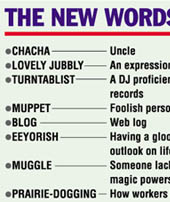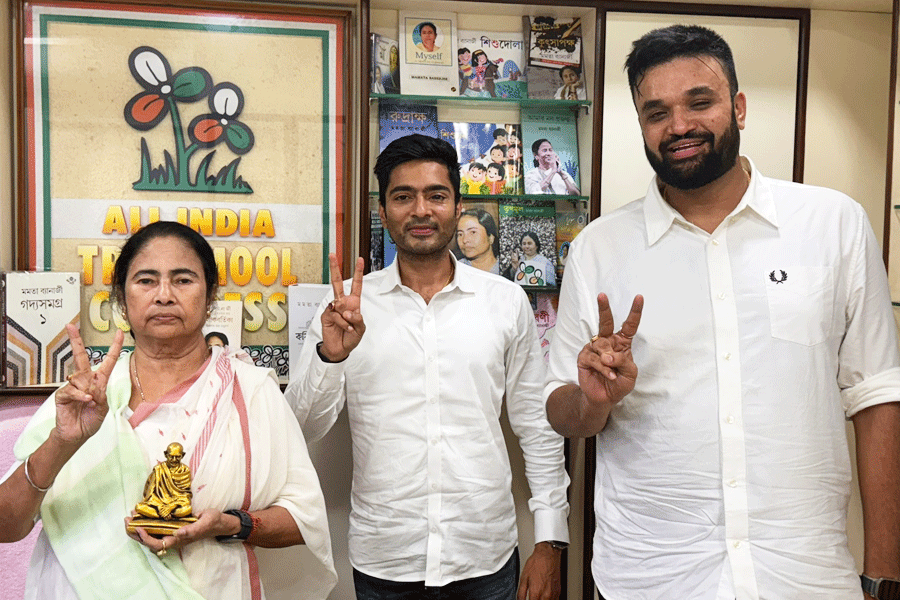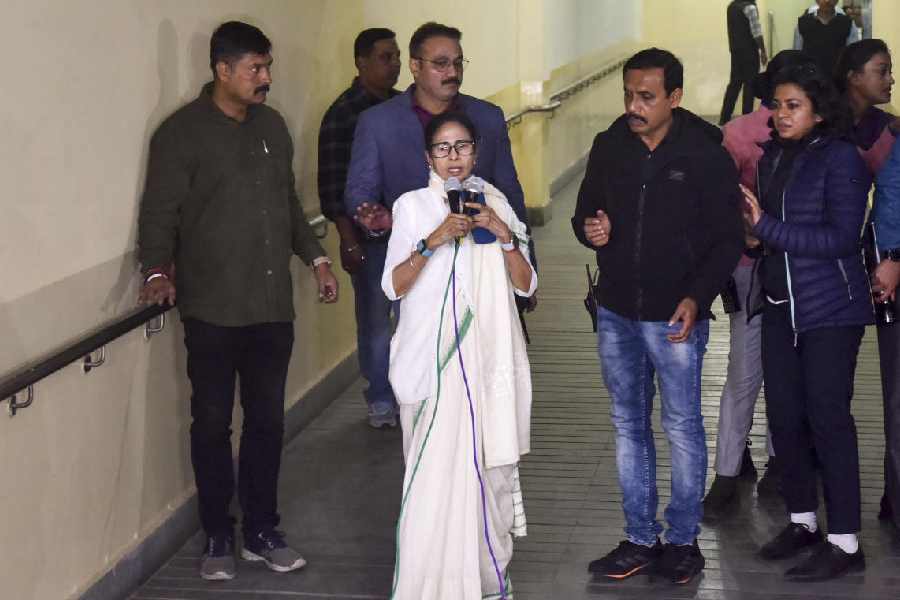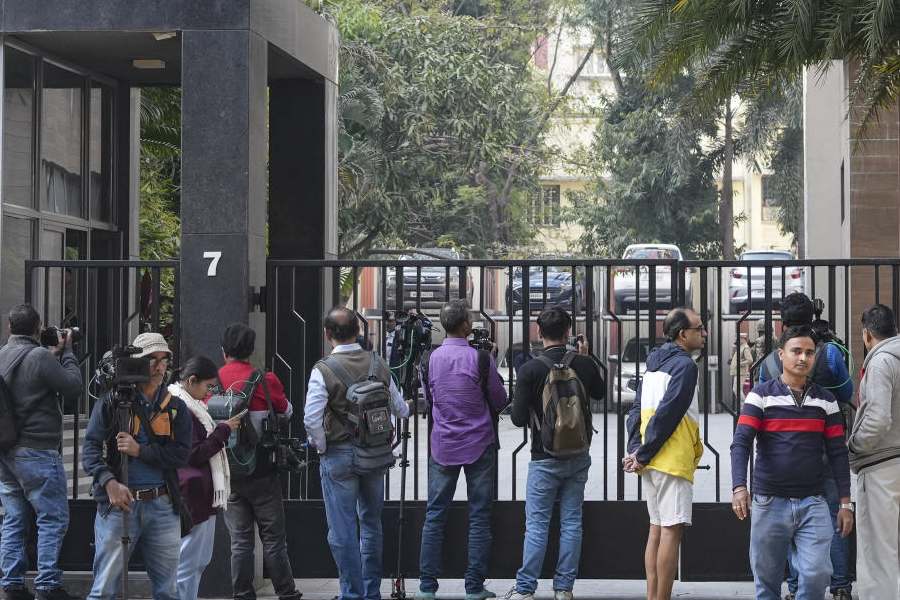 |
London, Aug. 21 (Agencies): Being called a “muppet” because you cannot remember the meaning of a word? Or feeling a bit “eeyorish” and confused at our rapidly changing language?
Those are among 3,000 new expressions that have entered English usage, many of them slang or foreign words, which are included in the new edition of the Oxford Dictionary of English published today.
“Muppet,” taken from the children’s TV show, Sesame Street, means a foolish person, while “eeyorish” refers to the character in Winnie the Pooh known for his gloomy outlook on life.
Not surprisingly, many new entries come from the world of science and high-tech, particularly genetics and the Internet. Thus “blog” (short for web log), and “egosurfing” (searching the Internet for references to oneself) are joined in the dictionary by more complex words such as “pathogenicity” and the alarming “shotgun cloning” (the insertion of random fragments of DNA).
New words included in the dictionary often reflect the current trends and changing cultural make-up of the UK.
Britain’s multiethnic population has had a great influence on the new edition, with many words included from Chinese, Yiddish and Indian languages. “Chacha” is a Hindi word for uncle, “doudou” is a West Indian term of endearment, “sic bo” is a Chinese game of dice, and “bashert” is a Yiddish word for fate.
The US influence is evident in “bada bing,” the name of Tony Soprano’s strip-joint in the hit TV show The Sopranos, meaning “an effortless act.” The dictionary describes “bada bing” (also “bada bing bada boom”) as an exclamation to emphasise that something will happen effortlessly and predictably.
Not to be outdone, British television produced “lovely jubbly” an expression of delight from wisecracking comedy Only Fools and Horses.
The term “24/7” has officially entered common usage in the UK, as have “nerd,” “geek,” and the more obscure “bake-off.”
The more unpleasant side of modern life pops up with “counter-terrorism,” “dirty bomb,” and “mission creep” all included in the dictionary. Words like “grooming,” have taken on a more sinister association with child sexual abuse.
On a lighter note, words from office life often crop up. “Prairie-dogging,” for example, a term describing how workers in an open-plan office raise their heads above the partitions surrounding their desks when they want to see what is going on.
These changes are gleaned from a range of sources such as comics, newspapers, TV scripts, novels, the Internet, and scholarly journals.. “Reality TV”, “Sars” and “Muggle”, someone lacking magic powers from the Harry Potter series of novels, have also been added to the tome. From pop culture comes “Boy” and “Girl bands”, “bootylicious” and “turntablist”, a DJ proficient at spinning records.
From the Internet new words have been added, like “cyberslacker”,“egosurf” and “hacktivist”, to the dictionary.











